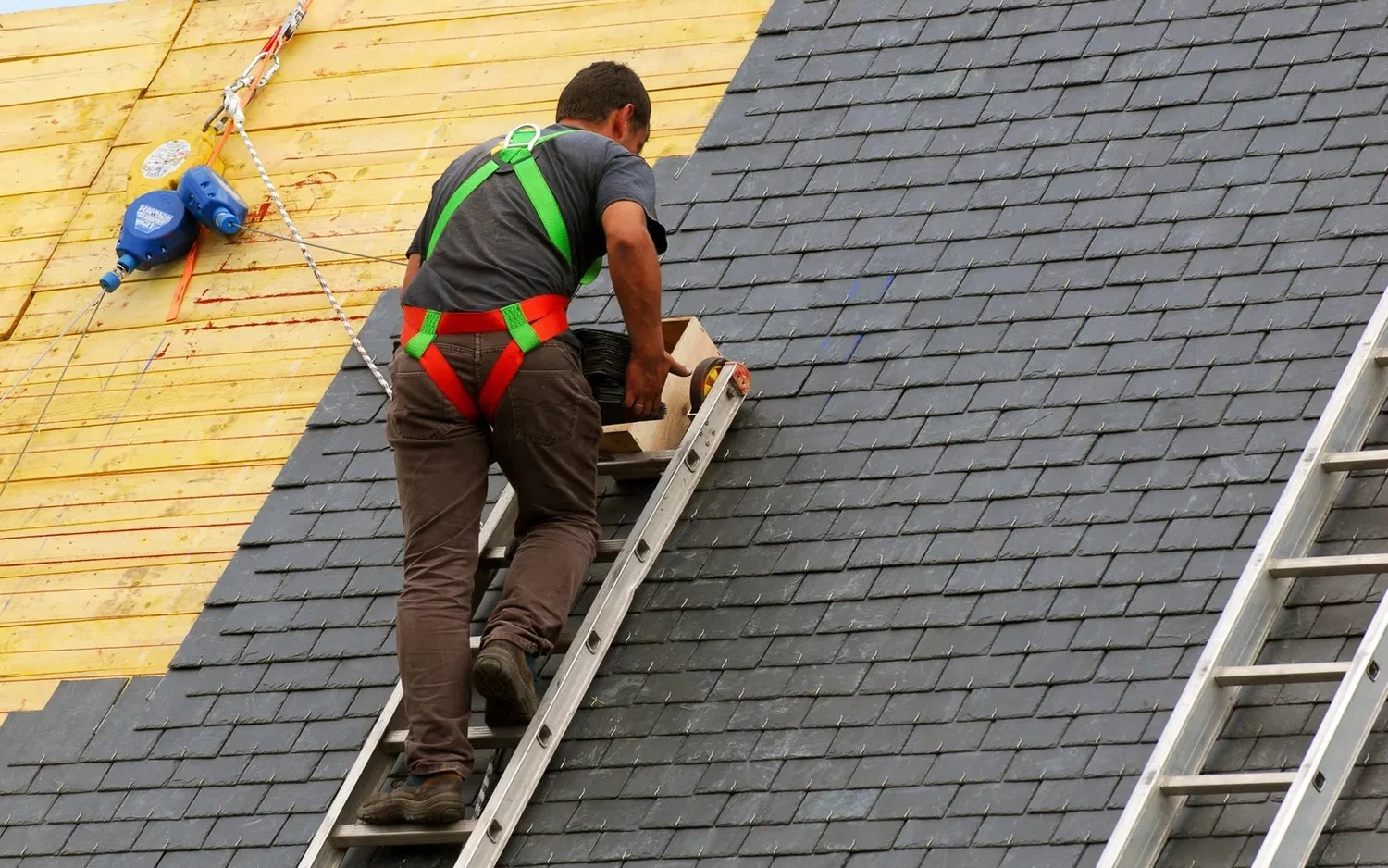Roofing repairs are crucial for maintaining the safety and longevity of your home. Whether you need minor fixes or extensive repairs, understanding the different types of roofing repair services can help you make informed decisions. In this article, we will explore some of the most common roofing repair services available to homeowners.
1. Leak Repair
One of the most common reasons for roofing repairs is leaks. A leaking roof can cause extensive damage to the interior of your home, including walls, ceilings, and insulation. The source of a leak can be difficult to identify without professional assistance, as water often travels along beams and other structural components before showing signs on the ceiling.
A roofing professional will inspect the roof to locate the leak and determine the best course of action. This could involve sealing cracks, replacing damaged shingles, or fixing damaged flashing. Roof leaks should be addressed immediately to prevent further damage.
2. Shingle Repair and Replacement
Shingles are a primary component of many roofs, but they can become damaged over time due to weather, wear, and tear. Missing, cracked, or curled shingles can lead to leaks and other issues, especially if they are not repaired or replaced promptly.
Roofing professionals are skilled in replacing individual shingles without needing to replace the entire roof. They will assess the damage and replace any shingles that are worn or broken. Shingle replacement can be a cost-effective way to extend the life of your roof and prevent further damage.
3. Flashing Repair
Flashing is a material that directs water away from key areas on your roof, such as chimneys, vents, and skylights. Over time, flashing can deteriorate, crack, or become loose, leading to leaks. Flashing repair is an essential service to prevent water from seeping into vulnerable areas.
Roofing contractors will inspect the flashing around critical areas and replace or reseal it as needed. Proper flashing repair is essential for ensuring that your roof remains watertight and continues to protect your home.
4. Gutter Repair and Cleaning
Gutters are vital for directing rainwater away from your roof and foundation. When gutters become clogged or damaged, water can overflow, causing damage to the roof and the home’s foundation. Clogged gutters can also lead to water pooling on the roof, increasing the risk of leaks.
Gutter repair and cleaning services ensure that your gutters remain functional. A professional will clear debris, check for any signs of damage, and repair or replace sections of the gutter system that are no longer working properly.
5. Roof Patching
Roof patching is a quick and effective solution for addressing small holes or areas of damage. It involves applying a patch over the damaged area to seal it and prevent leaks. Patching can be a temporary fix, but it’s often necessary to prevent further water damage while you plan for more extensive repairs or a roof replacement.
Roof patching is commonly used for smaller issues, such as minor leaks, holes caused by fallen branches, or small areas of missing shingles. It is essential to ensure that the patched area is well-sealed to prevent additional damage.
6. Roof Coating
Roof coating involves applying a protective layer over the existing roof to seal it and extend its lifespan. This service is typically used for flat or low-slope roofs and can help prevent leaks, improve energy efficiency, and protect the roof from the elements.
Roof coatings come in various forms, including elastomeric, silicone, and acrylic coatings. These coatings are designed to reflect sunlight, reduce the heat absorbed by the roof, and prevent damage from UV rays, rain, and wind. This service is often chosen by homeowners looking to enhance their roof’s durability without replacing it entirely.
7. Roof Inspections
Regular roof inspections are essential for identifying potential issues before they become major problems. A roofing contractor will assess the condition of your roof, looking for signs of wear and tear, leaks, and other damage.
Roof inspections are recommended annually or after significant weather events, such as storms or heavy snowfall. A comprehensive roof inspection will help you stay ahead of any issues and allow you to address repairs promptly, saving you money in the long run.
8. Roof Ventilation Repair
Proper ventilation is crucial for maintaining a healthy roof and attic space. Poor ventilation can lead to a buildup of moisture, which can cause mold, mildew, and rot. It can also lead to increased energy costs as heat becomes trapped in the attic during the summer months.
Roof ventilation repair services focus on ensuring that vents are functioning correctly and providing adequate airflow. This may involve repairing or replacing vents, sealing gaps, or adding additional ventilation to improve airflow.
9. Structural Repairs
Sometimes, roofing issues go beyond the surface level. Structural damage can occur due to extreme weather events, age, or poor installation. Structural repairs may be necessary if the framework of the roof is compromised, which can lead to sagging or even roof collapse.
Structural repairs are more extensive and may involve reinforcing or replacing roof beams, rafters, or supports. A professional roofing contractor will conduct a thorough inspection to assess the severity of the damage and recommend the best solution.
10. Roof Replacement
While roof repairs are often the go-to option for homeowners, there comes a point when a roof may be beyond repair. If your roof has reached the end of its lifespan or has suffered extensive damage, a complete roof replacement may be necessary.
Roof replacement is a significant investment, but it ensures that your home is fully protected. A roofing contractor will help you choose the best materials for your new roof and handle the entire installation process. Depending on the size and complexity of the roof, the replacement can take a few days to a week.
Conclusion
Roofing repair services play a crucial role in maintaining the integrity of your home. From leak repairs to structural fixes, there are various services available to address different types of damage. Regular maintenance and prompt repairs can extend the life of your roof and protect your home from further damage. Always hire a professional roofing contractor to ensure that repairs are done correctly and safely. Whether you’re dealing with minor issues or need a complete roof replacement, timely action can save you money and prevent serious problems down the line.
FAQs
1. How do I know if my roof needs repairs?
Signs of roof damage include leaks, missing or damaged shingles, water stains on ceilings, and a sagging roof. If you notice any of these issues, it’s essential to schedule a professional inspection to assess the condition of your roof.
2. How long do roofing repairs take?
The duration of roofing repairs depends on the type and extent of the damage. Minor repairs, such as shingle replacement or patching, may take a few hours, while more extensive repairs or replacements could take several days.
3. How much do roofing repairs cost?
The cost of roofing repairs varies based on the type of repair, the materials used, and the size of the roof. Minor repairs can cost a few hundred dollars, while major repairs or replacements can range from a few thousand dollars to more.
4. Can I repair my roof myself?
While some minor repairs, such as patching small holes, can be done by homeowners, it’s generally best to hire a professional roofing contractor. Roofing repairs often involve working at heights, and improper repairs can cause further damage or lead to safety risks.
5. How often should I inspect my roof?
It’s recommended to inspect your roof at least once a year. Additionally, after major storms or severe weather events, a roof inspection can help identify any damage early and prevent costly repairs down the road.

